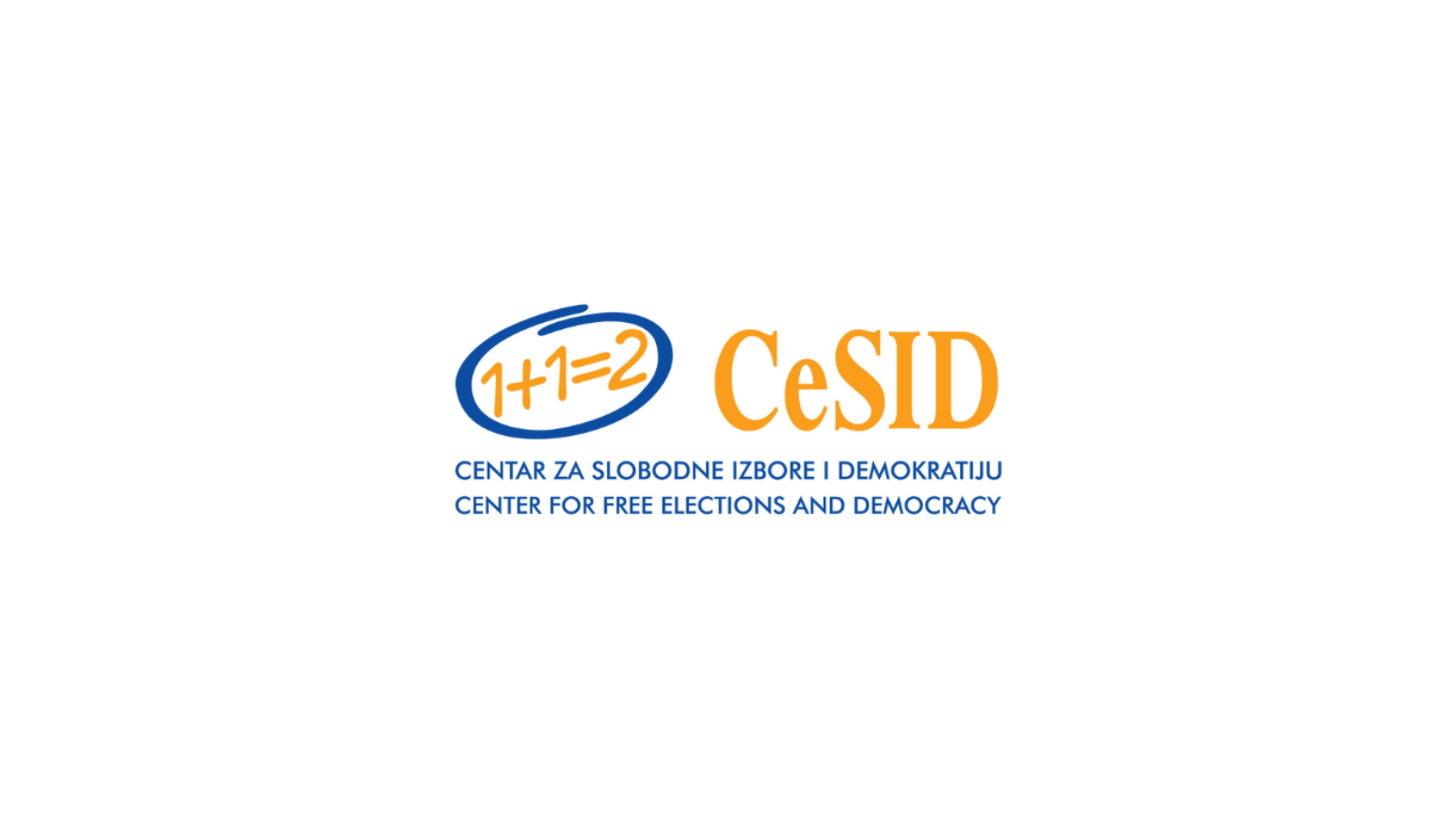Summary of organization’s strategic orientation
CeSID was established in 1997 in the form of an association of citizens, as the first Serbian watchdog organization with the primary task to organize nationwide domestic election monitoring. Determined to contribute to evidence-based policy planning, CeSID has been developing as a think tank since 2002, rallying around its research and policy advocacy projects some of the most prominent experts from the Western Balkans in the fields of sociology, statistics, political science, public affairs, economy, law and media, public health, entrepreneurship, psychology, energy efficiency, and environment. CeSID has 25 years of experience and a track record of over 70 successfully completed projects working with Serbian and other Western Balkans governments and their offices, political parties, local communities, international organizations, educational institutions, civil society organizations, trade unions, think tanks, media, businesses and their associations and other counterparts.
Summary of the supported project
Newer global events – the conflict in Ukraine, the cooling of relations between the West and Russia and the economic consequences for Europe and the world have once again fueled the debate in Serbian society about the country’s foreign policy direction, as well as the ubiquity of conflicting information (and disinformation) about Ukraine, Russia, the EU, and the USA. The consequences for social perception are visible: the strengthening of the right-wing narrative; pro-Russian right-wing parties achieved success in the 2022 elections precisely on these issues; the media additionally depicted polarization on these issues, with a large amount of unverified information. An additional incentive and danger, especially for inter-ethnic relations, are the damaged relations between Belgrade and Pristina from the second half of 2022 and during 2023, which included incidents in Kosovo and a potential increase in social distance between Serbs and Albanians. As the European Union is primarily a peace project, the fact that support for Serbia’s European integration has fallen in recent years and amounts to less than 50% is also worrying. Previous research has shown that risks in terms of violent extremism certainly exist – there is a lack of perspective for young people, neglect of mental health and support, division along ethnic lines, as well as regional and global politics and different interpretations of current and former conflicts. Also, it was noticed that it was young people (especially those aged 15 to 19) who expressed attitudes that could at some point spill over into violent action. The latest tragedies, when at the beginning of May 2023, two young people separately committed mass murders in the Belgrade Elementary School “Vladislav Ribnikar” and in the vicinity of Mladenovac, speak precisely in favor of how dangerous violent extremism can be, as a method present among young people, and how violence can occur as a spiral – for one event to fuel another.
With this in mind, the project “Violent Extremisms and Youth: from disinformation to Radicalization” aims to reduce young people’s propensity towards violent extremism through research, advocacy and education. The project aims to Obtain insight into facts relevant to understanding, emergence and prevention of violent extremism, as well as inform Decision makers about the importance of issues related to the topic and policy proposals. The project will connect and educate youth from different regions in Serbia and will have an extensive online campaign.
Project goal(s)
The project’s overall goal is to contribute to reducing the propensity of young people towards violent extremism through research, advocacy and education.
Specific objective 1 – research component: Gain insight into the perception of (violent) extremism and the willingness to accept it among young people, through research on the understanding and perception of international circumstances, attitude towards European integration, disinformation, security risks, media and information literacy and media habits of young people in three regions;
Specific objective 2 – advocacy component: Advocacy for the adoption, modification and harmonization of the national strategic framework in the areas of security, prevention of terrorism and hooliganism, youth and public information (media and information literacy);
Specific objective 3 – networking component and capacity building: Networking and capacity building of young people and youth/local organizations from three different regions of Serbia;
Specific objective 4 – campaign component: Implementation of a campaign to spread awareness about (violent) extremism, as well as about disinformation and the importance of media and information literacy in the context of extremism.
Beneficiaries
1) Primary target group – youth
2) Decision makers
3) Local and youth organizations of civil society
4) Researchers and think tanks
Main activities
- Development of the methodology of public opinion research
- Conducting research
- Analysis and writing of research report
- Desk analysis of strategic documents and analysis
- Creation of policy proposals
- Meeting with decision makers (advocacy)
- Three-day seminar in Zlatibor
- Implementation of small initiatives of participants in local communities
- Seminar in Novi Pazar
- Seminar in Bujanovac
- Preparation of campaign materials
- Implementation of the campaign on social networks








